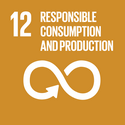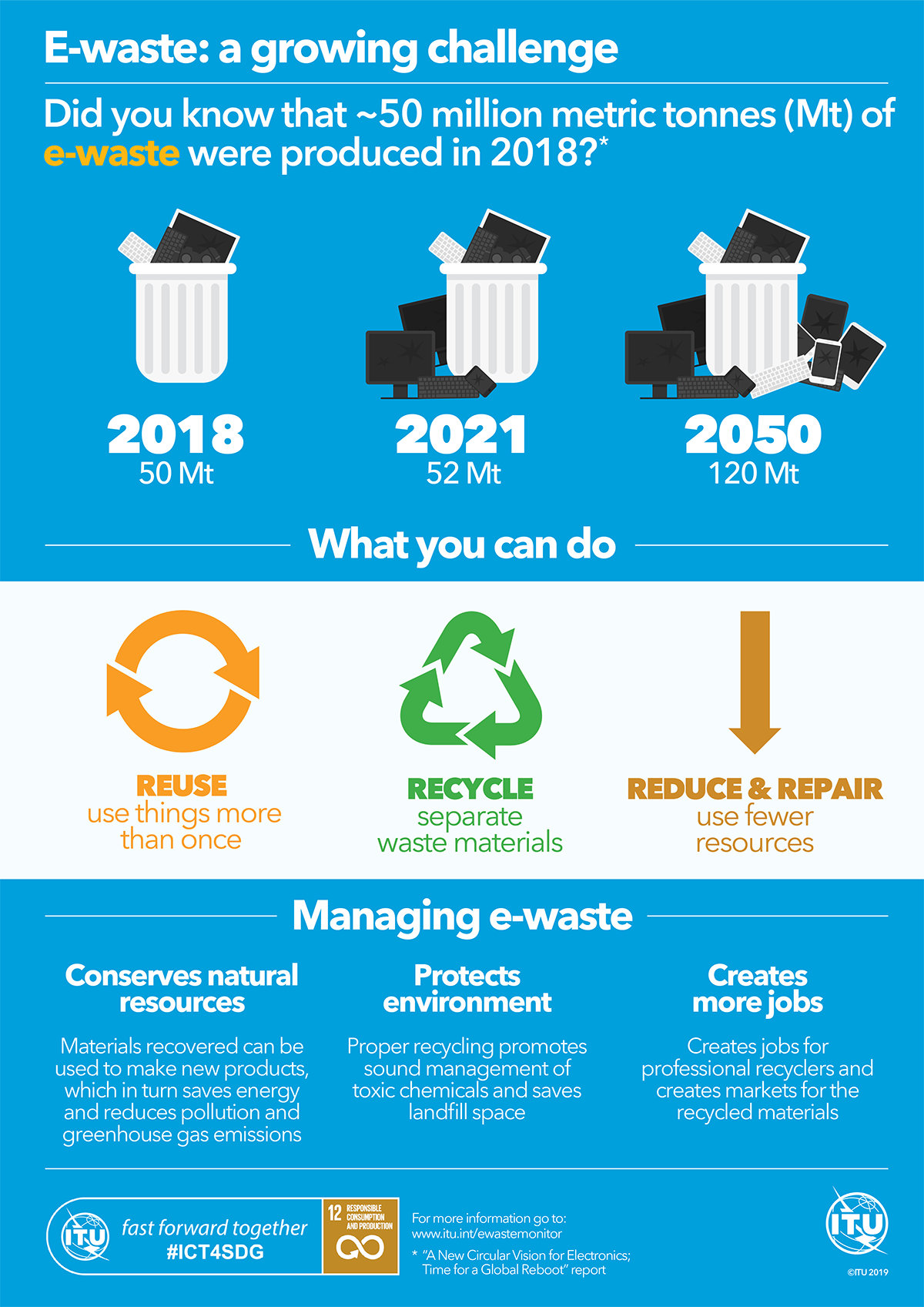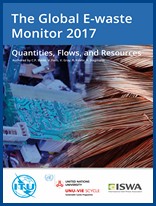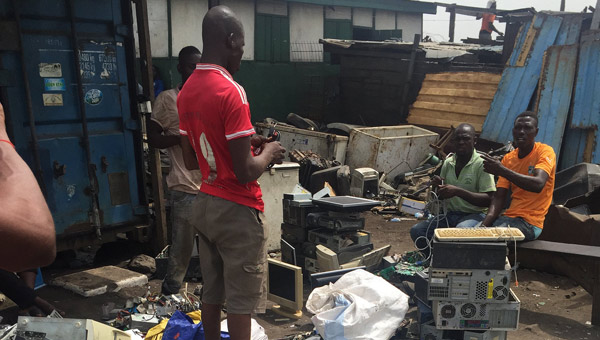|

|
ICTs and responsible consumption and production are linked in two ways: increased dematerialization and virtualization as well as innovative ICT applications enabling sustainable production and consumption. Cloud computing, smart grids, smart metering, and reduced energy consumption of ICTs all have a positive impact on reducing our consumption. However, ICTs themselves require energy consumption. Therefore, effective policies are needed to ensure the negative impacts of ICTs, such as e-waste, are minimized.
|

A New Circular Vision for Electronics – Time for a Global Reboot
Seven UN entities have come together, supported by the World Economic Forum, and the World Business Council for Sustainable Development (WBCSD) to call for an overhaul of the current electronics system, with the aim of supporting international efforts to address e-waste challenges.
Links:
The Global E-waste Monitor 2017
The Global E-waste Monitor 2017, a joint effort of the ITU, the United Nations Universi ty (UNU) and the International Solid Waste Association (ISWA), provides the most comprehensive overview of global e-waste statistics and an unprecedented level of detail, including an overview of the magnitude of the e-waste problem in different regions. The report includes up-to-date information on the amounts of e-waste generated and recycled, makes predictions until 2021, and provides information on the progress made in terms of e-waste legislation.
ty (UNU) and the International Solid Waste Association (ISWA), provides the most comprehensive overview of global e-waste statistics and an unprecedented level of detail, including an overview of the magnitude of the e-waste problem in different regions. The report includes up-to-date information on the amounts of e-waste generated and recycled, makes predictions until 2021, and provides information on the progress made in terms of e-waste legislation.
Links:
Case study – Thailand
 |
- In Thailand, an application has been developed to help farmers in planning their cultivation and harvest by accessing weather information. The application, called
APP FONLUANG, was designed for use by government authorities, farmers and the general public, and delivers specific information on rainfall as well as cloud-seeding (atmospheric modification) actions. Farmers can use the app to request cloud-seeding operations in their own area. For government agencies, the app provides a crucial data collection tool allowing the situation nationwide to be analyzed, with the aim of addressing water shortages both in terms of agriculture and consumption.
-
Related links:
FONLUANG and WSIS Stocktaking
|
